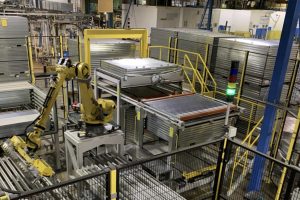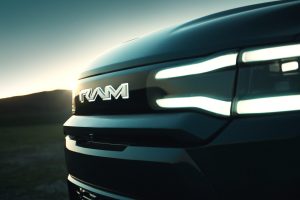- 💼 Tesla is not receiving a separate policy from India’s government officials despite close ties between Elon Musk and Prime Minister Narendra Modi.
- 🇮🇳 The ongoing saga between Tesla and India lacks a clear resolution, with no partnership in sight.
- 🚗 Tesla desires to import vehicles from another factory to test demand, while India insists on a commitment to local manufacturing before rolling back import duties.
- 🏢 Indian officials affirm that Tesla will not receive special treatment or import duty rollbacks unavailable to other companies.
- 📝 The Union Minister of State for Heavy Industries confirmed that no separate policy exists for providing incentives to Tesla, but there are existing schemes for promoting advanced automotive technology products.
- 💰 Tesla can apply for incentive programs like the “National Programme on Advanced Chemsty Cells Battery Storage” to bolster India’s manufacturing capabilities.
- 🛠️ India prioritizes domestic manufacturing efforts through campaigns like “Make in India” and aims to discourage reliance on imported vehicles.
- 📉 Domestic EV companies in India advocate for maintaining pressure on Tesla, fearing preferential treatment that could disrupt the market.
In the dynamic landscape of global business, the interactions between multinational corporations and national governments often shape the trajectory of industries and economies. The ongoing saga between Tesla, the electric vehicle (EV) giant, and India, one of the world’s largest emerging markets, offers a compelling case study in the complexities of international business relations. Let’s delve into the nuances of this relationship and explore its implications for the automotive industry and beyond.
Unraveling the Narrative: Tesla’s Quest for Market Entry
Tesla’s pursuit of a foothold in the Indian market has been riddled with challenges and uncertainties. Despite the personal rapport between CEO Elon Musk and Prime Minister Narendra Modi, Tesla has yet to secure a favorable policy environment conducive to its expansion plans. The absence of a separate policy for Tesla signals a reluctance on India’s part to extend preferential treatment to the EV manufacturer, highlighting broader tensions between global corporations and national sovereignty.
Clashing Priorities: Import Duties versus Domestic Manufacturing
At the heart of the Tesla-India standoff lies a fundamental divergence in priorities. While Tesla seeks to gauge market demand by importing vehicles from existing factories, India insists on a commitment to local manufacturing as a prerequisite for rolling back import duties. This impasse underscores the clash between Tesla’s business model, centered on flexibility and innovation, and India’s strategic imperatives to bolster domestic production and self-reliance.
Policy Realities: No Special Treatment for Tesla
Indian officials have been unequivocal in their stance that Tesla will not receive special treatment or import duty rollbacks unavailable to other companies. The Union Minister of State for Heavy Industries affirmed this position, emphasizing the absence of a separate policy framework for providing incentives to Tesla. Instead, existing schemes for promoting advanced automotive technology products offer avenues for Tesla to navigate India’s regulatory landscape.
Pathways to Collaboration: Incentive Programs and Manufacturing Initiatives
Despite the current impasse, there are potential pathways for collaboration between Tesla and India. Tesla can leverage incentive programs like the “National Programme on Advanced Chemistry Cells Battery Storage” to bolster India’s manufacturing capabilities and align with the country’s objectives for technological advancement. By embracing initiatives like “Make in India,” Tesla can demonstrate its commitment to supporting India’s economic development while advancing its own interests in the market.
Industry Perspectives: Domestic EV Players and Market Dynamics
The standoff between Tesla and India has elicited mixed reactions from domestic EV players and industry stakeholders. While some advocate for maintaining pressure on Tesla to prioritize domestic manufacturing, others express concerns about potential disruptions to the market and the stifling of innovation. Balancing the interests of incumbent players with the imperatives of global competition presents a formidable challenge for policymakers and industry leaders alike.
Looking Ahead: Toward Collaboration and Innovation
As Tesla continues its quest to penetrate the Indian market, the path forward remains uncertain yet ripe with possibilities. Collaborative efforts between Tesla and Indian stakeholders hold the potential to drive innovation, spur economic growth, and catalyze the transition to sustainable transportation solutions. By navigating the complexities of regulatory frameworks, market dynamics, and geopolitical realities, Tesla can chart a course towards long-term success in India and beyond.





